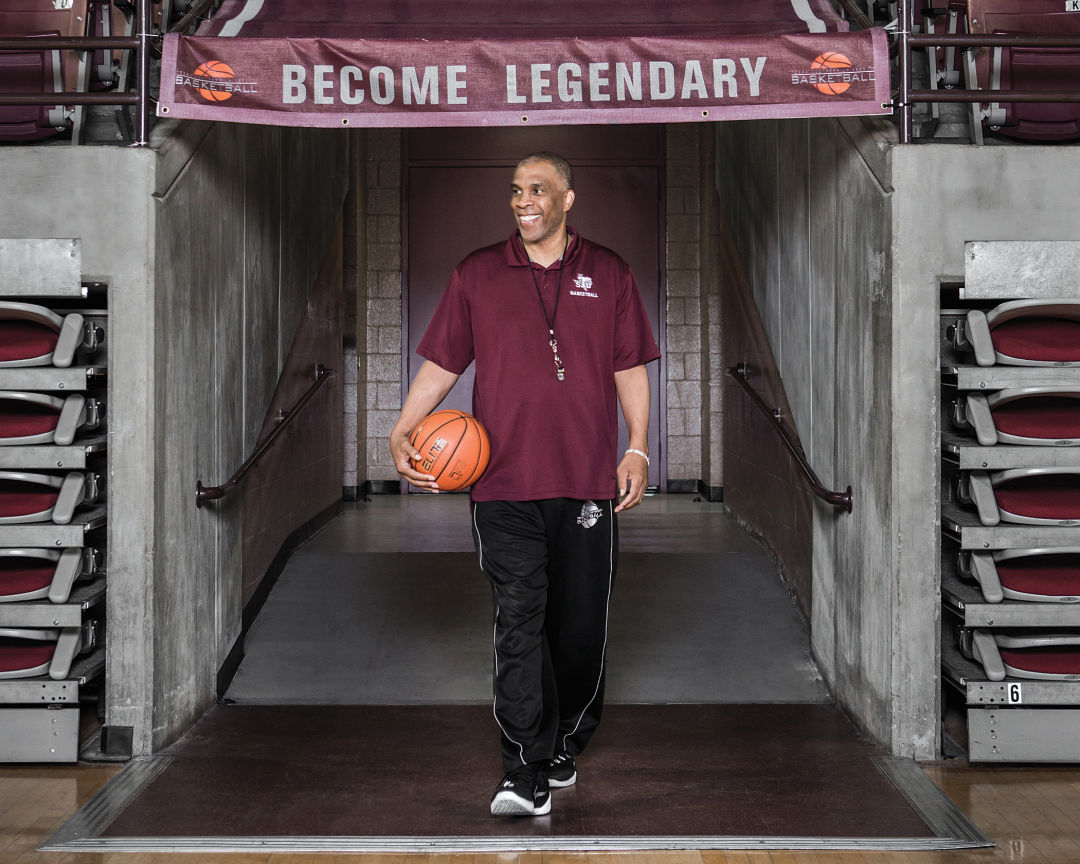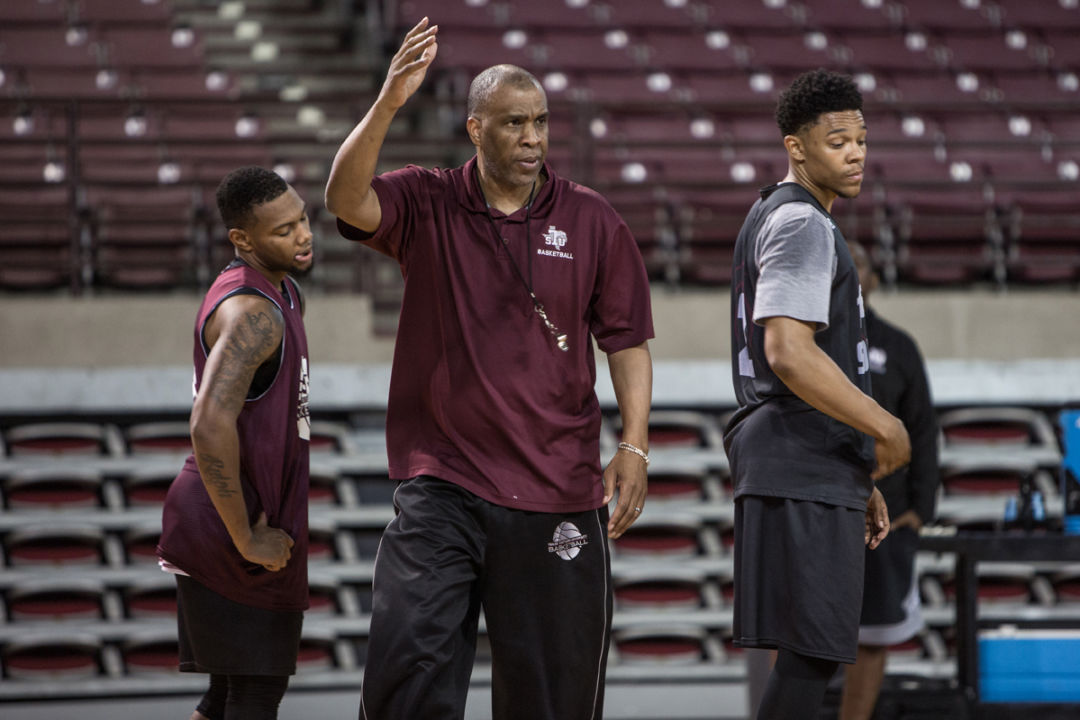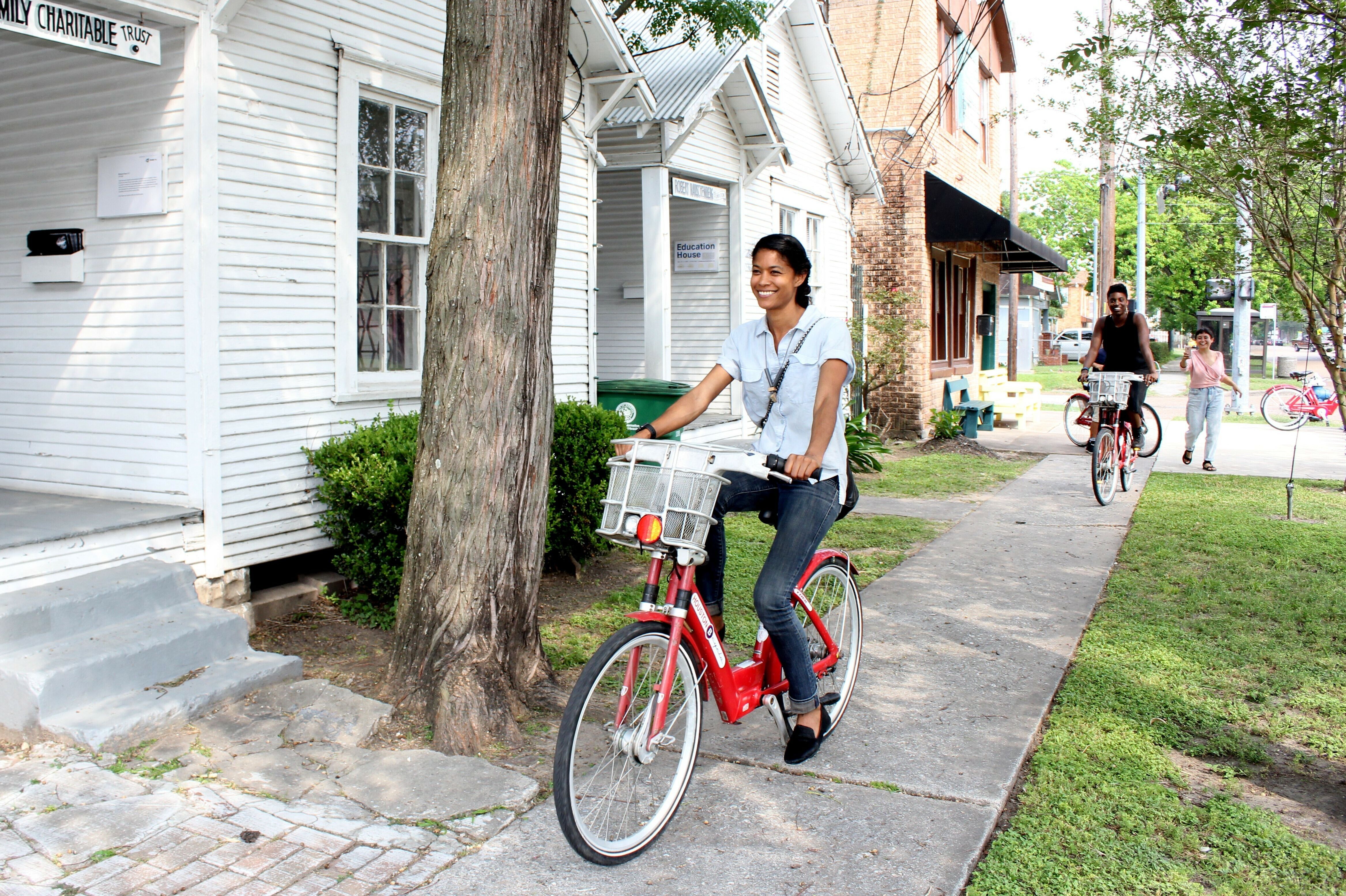Coach Mike Davis Is Playing It Forward at TSU

Fifteen years ago, Mike Davis led the Indiana Hoosiers to the National Championship game just 18 months after replacing Bobby Knight. Now, he's the head coach at Texas Southern University.
Image: Michael Starghill
Mike Davis walks into Texas Southern University’s Health and Physical Education Arena looking like a freshman on his way to an anthropology lecture. There’s a gray backpack slung over his right shoulder, headphones jammed into both ears. He’s wearing exceptionally baggy track pants and a billowy Nike T-shirt.
Aside from the gray stubble and middle-age spare tire, the 56-year-old looks exactly as he did 15 years ago, when he led the Indiana Hoosiers to the National Championship game just 18 months after replacing Bobby Knight, maybe the most iconic men’s basketball coach in NCAA history. His face is long and regal, his brow pronounced, his cheeks modestly freckled. He seems like a man who has learned a thing or two about this world.
It would be valid to question what in the hell Davis is doing at TSU, waiting for the women’s volleyball team to vacate the practice floor so his Tigers, in their off-brand black-and-gray jerseys, can loosen up. This dinged-up Third Ward gym is a long way from Bloomington’s Assembly Hall.
Davis, though, couldn’t be happier. He loves Houston, loves his bosses. His contract runs through 2020. He wants desperately to return to the Final Four, and to do so from this overlooked HBCU (historically black college or university), celebrating its 90th anniversary next year.
“Anything that can be done in basketball,” he says, “we can do it here.” It’s a bold claim, borderline loony, and one that Davis, winner of 313 career games, delivers with undeniable conviction.
Coaching at an HBCU is one of the toughest gigs in big-time sports. The Tigers’ basketball budget is a fraction of those found at blue bloods like UT, which impacts everything from academic preparation to game-day performance. And TSU’s endowment is $48.7 million, a figure that seems reasonable enough until you compare it with that of Rice, a neighbor with fewer undergrads and an endowment of $5.5 billion.

Davis has won 313 career games.
Image: Michael Starghill
“When you look at wealth inequality in higher education, it really does reflect wealth inequality in larger society,” says Aaron Taylor, a law professor at St. Louis University. “Black wealth is not like white wealth.”
Davis, for his part, didn’t blink when TSU called him from the basketball backwaters, in 2012. It had been five months since the University of Alabama–Birmingham, his next stop after Indiana, had let him go, citing lagging attendance despite decent results over six seasons. His mother had just passed away.
“I didn’t have a job!” he says. “So the TSU recruitment was easy.”
He hasn’t wasted limited resources chasing sought-after prospects. Instead, Davis has extended lifelines to transferring players who, like himself, spent time under brighter Division I lights but needed another chance.
In 2013-14, TSU rode center Aaric Murray—a one-time NBA prospect on his third team and in drug counseling—to its first NCAA tournament appearance in a decade. Davis’s current star, sophomore forward Derrick Griffin, originally signed to play both football and basketball at Miami, but failed to qualify academically. “I get those guys that have talent,” Davis says, “but I have to shape them and mold them into men, quick.”
To start this season, TSU will travel over 7,000 miles in five weeks, a 13-game gauntlet with stops in Arizona and Louisville, perennial powers. Davis relishes this trial by fire. His team learns how to play on a big stage, how to fight through discomfort. That each road trip nets TSU’s strapped athletic department $75,000, give or take, is a not-insignificant ancillary benefit.
So, yes, while TSU struggles outside the Southwestern Athletic Conference (SWAC), they’ve quietly won 60 of 72 conference games and claimed three regular-season titles since Davis’s unexpected arrival. Few programs across the country are comparably dominant.
October, however, is a time for hard lessons. Watching his squad move tentatively through a series of drills, bricking routine jump shots, Davis wears an expression of perpetual confusion. He wants his Tigers to play in control but with speed, to “learn to enjoy and embrace the work that it takes to be really good.” He can’t fathom how they keep curling and cutting in exactly the wrong directions.
“Did they come up with a new offense overnight?” Davis asks one of his assistants, loudly and rhetorically. “Then why are they doing some different s**t? Why?!”
On the next possession, Griffin fakes to his left and blows past his defender on the baseline, then locates a teammate for a wide-open three-pointer. Davis grins. Nobody, SWAC or otherwise, can defend against that.




